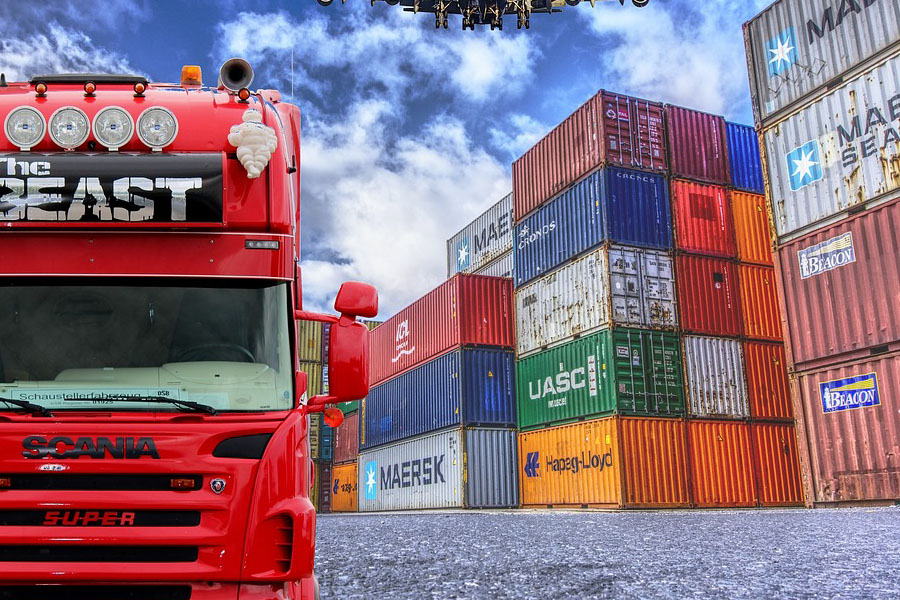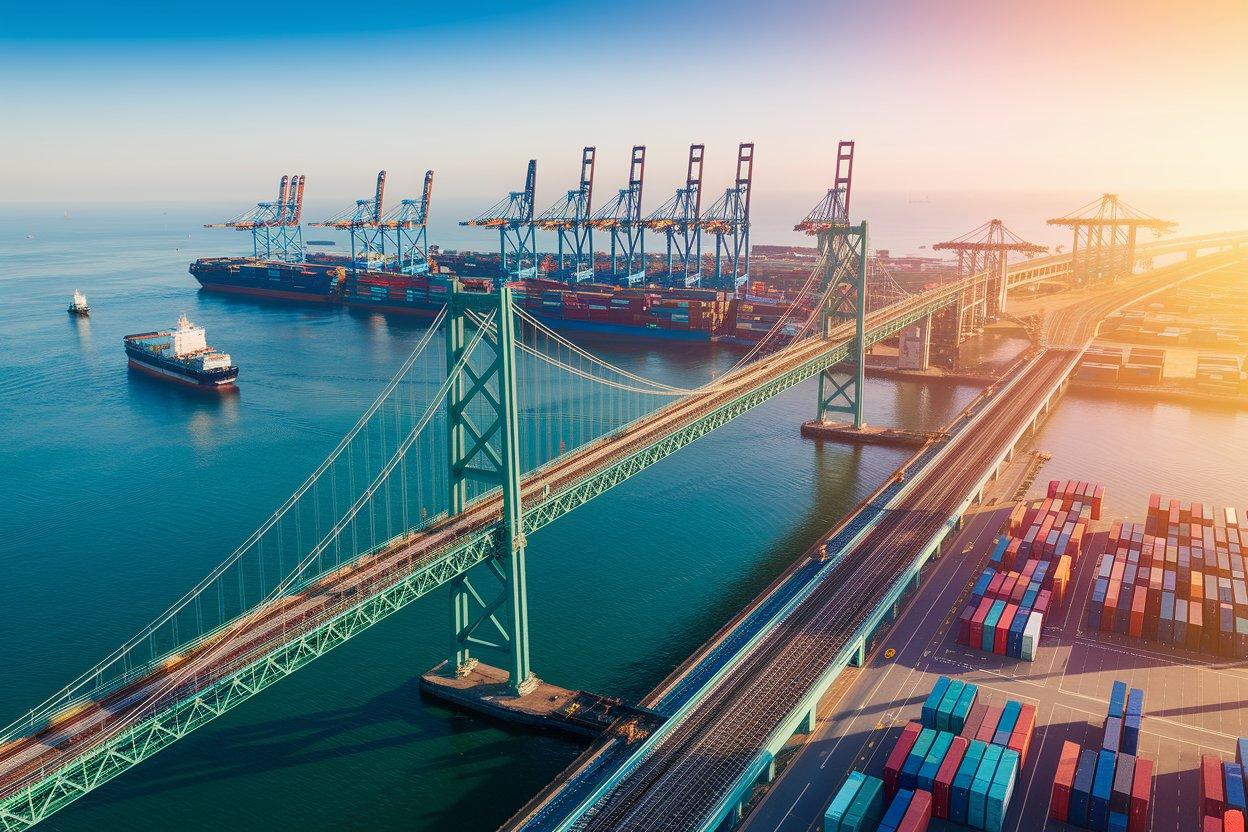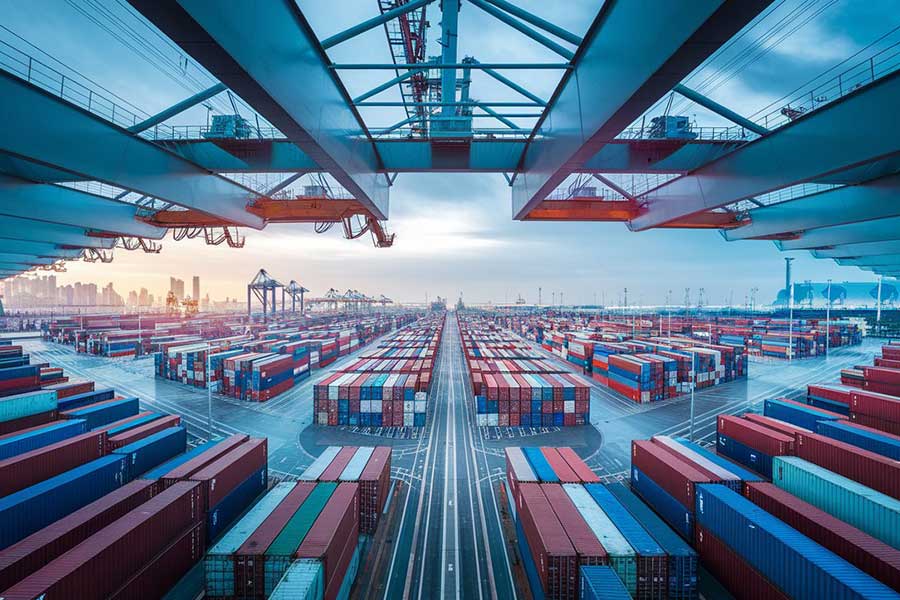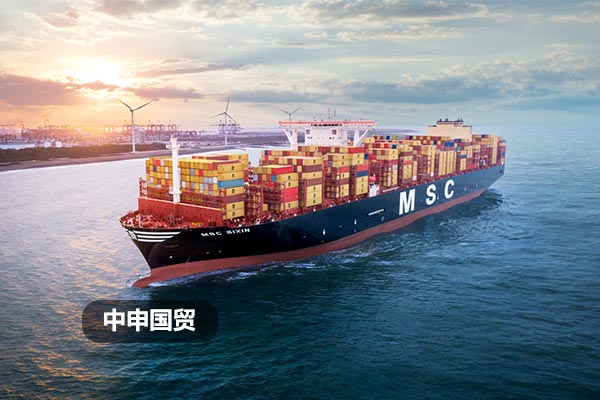- Shanghai Zhongshen International Trade Co., Ltd. - Two decades of trade agency expertise.
- Service Hotline: 139 1787 2118
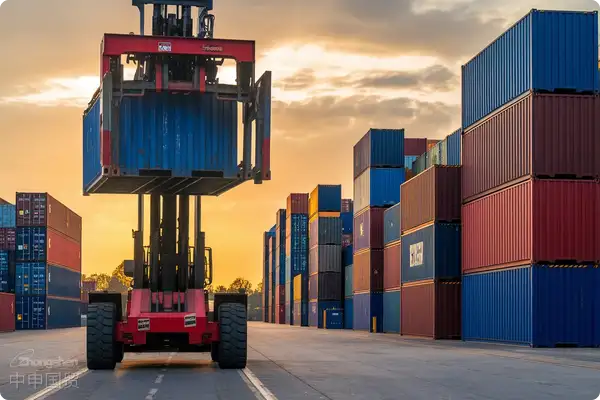
Introduction
On the grand stage of global trade, importing seals from Germany involves numerous considerations. Whether it's the complex documentation process, meticulous logistics arrangements, or the unpredictable landscape of international trade, each poses challenges to the import procedure. This article will focus on importing seals from Germany, providing you with comprehensive and practical insights.foreign tradeimport and exportGuide.
Key Points of Document Processing
For importing seals from Germany, document processing is the cornerstone of the import process. First is the commercial invoice, which summarizes key information such as the value, quantity, and specifications of the goods. It must be accurate and include details of both the buyer and seller, a detailed product description, and price terms (such as FOB, CIF, etc.). For example, if FOB Hamburg Port is used, it means the seller transfers the risk to the buyer once the goods are loaded onto the ship at Hamburg Port. In this case, the invoice must clearly indicate this term.
The Bill of Lading (B/L) is also crucial, as it serves as the document of title for the goods. When selecting the type of bill of lading, it is essential to consider the actual circumstances. If the goods are to be delivered to a specified consignee, a straight bill of lading may be used; if the transfer of ownership of the goods is required during transit, an order bill of lading is more appropriate.
The packing list provides detailed information about the goods in each package, including quantity, weight, volume, etc., facilitating customs inspection and the consignee's verification of the goods.
Professional document handling requires us to have a thorough understanding of the formats and content requirements of various documents, ensuring consistency among them to avoid contradictory information that could cause obstacles during customs clearance.
The intricacies of logistics arrangements
The choice of transportation method is crucial when shipping seals from Germany to China.Maritime TransportationIt is a relatively common method with lower costs, suitable for large-scale cargo transportation. When choosing sea freight, attention should be paid to the sailing schedule and routes, such as selecting liner services that call at major Chinese ports like Shanghai Port and Ningbo Port. At the same time, it is essential to cooperate with reliable freight forwarders, who can assist in handling a series of matters including booking space and customs clearance.
If the goods are urgent,Air TransportationAir freight is a better option. Although the cost is higher, the transportation time is shorter, enabling quick fulfillment of market demand. When using air freight, it is important to ensure that the packaging of the goods complies with airline requirements to guarantee the safety of the cargo during transit.
For inland transportation, it is necessary to consider domestic distribution methods, whether to choose road transport or rail transport, based on factors such as the delivery address and cargo volume. For example, if the delivery address is in a remote area, road transport may offer greater flexibility; if the cargo volume is large and the destination is near a railway station, rail transport may be more economical.
Unique Advantages of the Russian Market – VTB FX Settlement Agency
When it comes to the Russian market, our company has unique VTB foreign exchange settlement advantages. Foreign exchange settlement is a crucial part of import and export trade, as it determines whether the seller can safely receive payment. Generally speaking, the methods of foreign exchange settlement includeL/C(L/C), telegraphic transfer (T/T), etc.
In trade with Russia, if settlement is conducted through VTB Bank, the process is relatively simplified and secure. Taking telegraphic transfer as an example, when the Russian buyer remits payment via VTB Bank, due to our company's strong cooperative relationship with VTB Bank, we can receive the funds more quickly and complete the settlement procedures. Meanwhile, VTB Bank holds a significant position in the Russian financial system, with high credibility, effectively reducing settlement risks. For businesses involving importing sealing components from Germany and then reselling them to the Russian market, this advantage provides robust support for corporate fund recovery.
Import and Export Procedures and Solutions for the Southeast Asian Market
Import Process:
- Market research and supplier selectionBefore reselling sealing components imported from Germany to the Southeast Asian market, it is essential to thoroughly research the market demand in Southeast Asia, including understanding local preferences for sealing component specifications, price ranges, etc. Identify suitable suppliers through channels such as industry trade shows and online B2B platforms.
- Sign the Contract: Clearly define the rights and obligations of both parties, including the quality, quantity, price, delivery period, and payment method of the goods. For example, the payment method can be by letter of credit to ensure the interests of both parties.
- : After the goods arrive at the destination, agents assist enterprises in completing customs clearance and delivery.: Select the appropriate transportation method based on the cargo situation, such as shipping to major Southeast Asian ports like Singapore Port and Ho Chi Minh Port. Additionally, purchase cargo transportation insurance to safeguard against risks during transit.
- Clearance: Prepare basic documents such as commercial invoices, bills of lading, and packing lists, while also understanding the specific regulations and requirements of Southeast Asian countries. For example, some countries may have import restrictions or special certification requirements for specific sealing components.
Solutions:
To address the varying regulations across Southeast Asian markets, we proactively collect and organize relevant information for our clients to assist them in preparing customs clearance documents. Regarding certifications, although our company does not directly handle the certification process, we inform clients of the required certification types. For instance, in certain countries where sealed documents may need to comply with local quality certification systems, we facilitate connections between clients and certification bodies to ensure a smooth certification process, thereby enabling a seamless transition from import to sales.
Challenges and Opportunities in the Current International Trade Landscape
The current international trade situation is complex and volatile. The rise of trade protectionism poses a significant challenge, with countries introducing various tariff and non-tariff barrier measures. For instance, some nations may raise tariff rates on imported seals, increasing import costs; or impose stringent technical standards, environmental regulations, and other non-tariff barriers, demanding higher quality and performance from seals.
However, it also presents opportunities. With the advancement of the Belt and Road Initiative, trade cooperation with countries along the routes continues to deepen, opening up broader market spaces in regions such as Russia and Southeast Asia. Meanwhile, the development of digital trade has brought new opportunities to foreign trade, enabling easier customer expansion and document processing through online platforms.
Under these circumstances, importing seals from Germany requires us to closely monitor policy changes in various countries, promptly adjust import strategies, leverage digital tools effectively, and enhance our own competitiveness.
Product Certification Service Assistance
For sealing components imported from Germany, different markets may have varying certification requirements. For instance, in the European Union region, sealing components may need to comply with CE certification to demonstrate that the product meets the relevant EU directives and harmonized standards. In the Southeast Asian market, different countries also have their own certification systems.
Although our company does not directly handle certification services, we leverage our extensive experience to accurately inform clients of the required certification types and assist them in navigating the certification process. For instance, we help clients prepare the necessary documentation for certification, guide them in communicating with certification bodies, and ensure they avoid unnecessary detours during the process, smoothly obtaining the "passport" for their products to enter the target market.
Conclusion
Importing seals from Germany involves multiple steps, whether it's document processing, logistics arrangements, or adapting to the characteristics of different markets and the international trade situation, all of which require professional knowledge and extensive experience. Our companyZhongShen International TradeWith our professional expertise in document processing and logistics services, along with the advantage of VTB foreign exchange settlement for the Russian market and a deep understanding of the Southeast Asian market, we can provide you with comprehensive import process services to support your steady progress in international trade.
Related Recommendations
? 2025. All Rights Reserved. Shanghai ICP No. 2023007705-2  PSB Record: Shanghai No.31011502009912
PSB Record: Shanghai No.31011502009912

